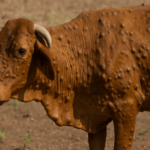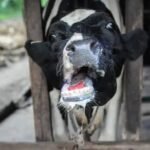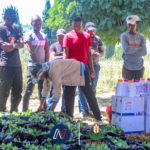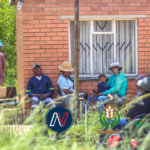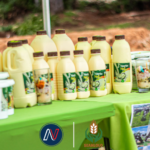Maseru recently became a beacon of reflection and forward-thinking as the Improving Adaptive Capacity of Vulnerable and Food Insecure Populations in Lesotho (IACoV) project hosted its Phase I Endline Symposium as a wrap up of the project in Lesotho.
Far more than a wrap-up, the event stood as a celebration of resilience, partnership, and shared ambition for a climate-resilient Lesotho.
Preceding the symposium was a vibrant community showcase from the Ha Mohlakoana community members from the Quthing district.
The community is where the project’s tangible impacts were brought to life. From climate-smart agriculture practices to innovative, community-led solutions, IACoV’s work has reshaped narratives around sustainable development and climate adaptation in Lesotho.
Since its launch in 2020, the IACoV project has been a testament to the power of partnerships—a joint initiative supported by the Government of Lesotho, the World Food Programme (WFP), the Adaptation Fund, and, crucially, local communities. These multi-level collaborations were celebrated throughout the event as critical to the project’s success.
‘Maphakamile Xingwane, Principal Secretary in the Ministry of Forestry and Environment, reflected on the project’s transformative journey.
“This day marks not just the end of Phase I, but the beginning of a long-term impact. The dedication poured into this initiative has already changed lives,” she said.
Xingwane emphasised the importance of continued cooperation, adding, “Let’s foster friendships and work together. Teamwork has proven to be the key behind IACoV’s success.”
For the WFP Country Director and Representative, Elliott Vhurumuku, the project’s importance is deeply rooted in Lesotho’s lived realities.
“Lesotho is grappling with the harsh effects of climate change—droughts, floods, and agricultural decline have worsened food insecurity. This project is our proactive response,” he said.
Vhurumuku applauded the four-year partnership between WFP and IACoV, reaffirming WFP’s continued commitment to fighting malnutrition, vulnerability, and poverty in the region.
A standout moment of the symposium came when students from Ts’akholo High School and Hope English Medium High School took the stage for a compelling debate on climate change and its impact on agriculture and education. Their passion and insight moved the room—a powerful reminder that the future is both affected and shaped by youth.
In a rousing keynote address, Molefi Phaqane, Chairperson of the National Climate Change Committee, likened the climate crisis to a global battle. “This is World War III. We cannot win this war alone. Only through unity can we protect our planet and our people,” he said.
As the symposium concluded, one message echoed through the hall: IACoV is only just beginning. After four years of profound impact, Vhurumuku said the groundwork has been laid for deeper, broader, and more inclusive climate resilience efforts across Lesotho.

